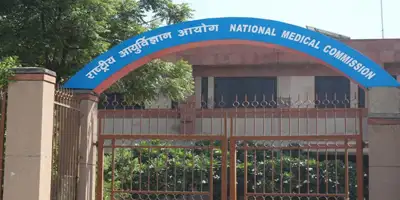
Chennai: The medical community is divided over the Union Health Ministry and the National Medical Commission’s (NMC) recent decision to lower the admission cut-off for NEET-PG 2024. Critics argue that this move compromises the quality of medical professionals and benefits private institutions by enabling them to fill seats with less qualified candidates, thereby increasing profits.
The NMC counters these claims, stating that the cut-off reduction aims to alleviate resident doctors’ excessive workloads and address the issue of unfilled seats in non-clinical specializations such as Pharmacology, Anatomy, Physiology, Biochemistry, and Microbiology.
Revised Cut-Offs
The NEET-PG cut-off has been lowered to the 15th percentile for General and EWS candidates and the 10th percentile for SC, ST, OBC, and PwD categories.
Ensuring Quality Training
Dr. B. Srinivas, Secretary of the NMC, explains, “Lowering the percentile will not impact the quality of medical professionals, as all candidates are already qualified MBBS doctors with hands-on patient care experience. Postgraduate training will further enhance their expertise, and all students must pass their final exams to earn their PG degrees. Those who fail will continue as MBBS practitioners.”
Addressing Burnout and Workforce Shortages
The decision is also aimed at combating doctor burnout. A 2024 survey by the NMC’s Mental Health Task Force revealed that prolonged hospital duties contribute significantly to mental health issues among medical students. Dr. Srinivas adds, “This step will benefit both patients and resident doctors by increasing the number of resident doctors in hospital OPDs, alleviating staff shortages and reducing the burden on the existing workforce.”
Tackling Vacant Seats in Non-Clinical Specializations
Vacancies in pre-clinical and para-clinical PG seats remain a major concern, as clinical specializations are the top choice for NEET-PG aspirants. Vacant seats in government and private colleges result in significant resource losses, with the government incurring setup costs of ₹1–₹1.5 crore per seat.
“Filling these seats with students who score lower in NEET-PG will reduce resource wastage and improve the efficiency of colleges,” Dr. Srinivas notes. Private colleges have also started lowering fees for non-clinical branches after initial counselling rounds, making these courses more affordable.
Expanding Opportunities for Non-Clinical Specialists
The NMC plans to integrate non-clinical specialists into roles with clinical exposure, utilizing their skills in OPDs, nursing homes, and hospitals. This approach, successfully employed during the COVID-19 pandemic, aims to enhance job prospects for non-clinical PG graduates while reducing reliance on AYUSH doctors in such roles.
Dr. Srinivas concludes, “MBBS doctors have appealed to the NMC to enable them to enroll in pre-clinical and para-clinical courses, helping them save time and advance their careers.”
The move is designed to strengthen the healthcare system by addressing staff shortages and optimizing available resources, while also improving career pathways for medical graduates.


